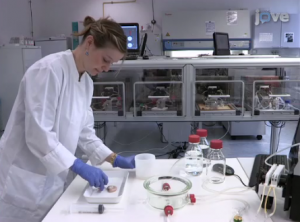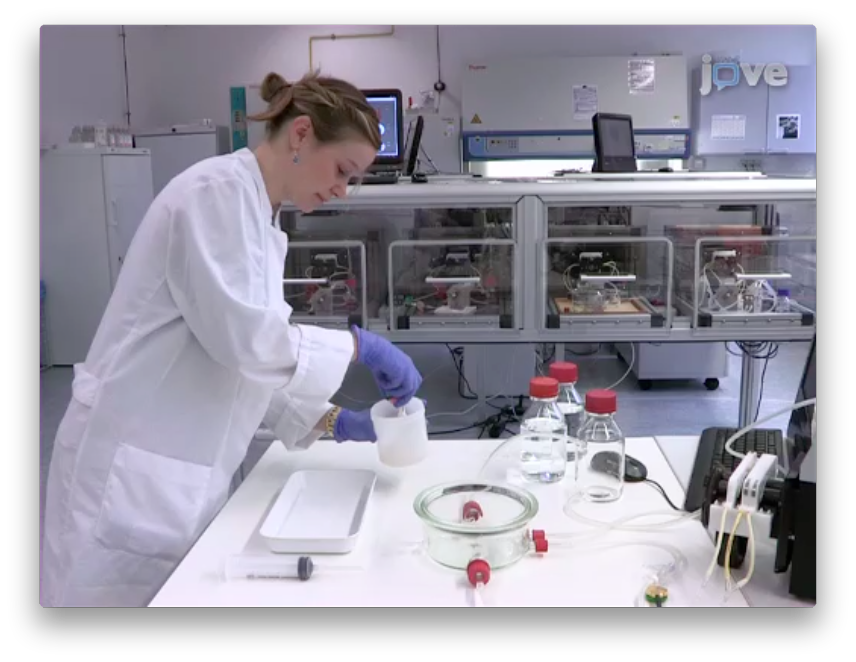I never saw much potential in crowdfunding. But that changed on Tuesday.
 JoVE uses video to visualize scientific methods. Here, a lab-born, human tissue structure called
the BioVaSc—used for testing tumor growth, and with implications for individualized medicine.
JoVE uses video to visualize scientific methods. Here, a lab-born, human tissue structure called
the BioVaSc—used for testing tumor growth, and with implications for individualized medicine.
When I spoke with Joel Nowak at StartACure.com—a prostate-cancer crowdfunding site only 8 weeks into launch—I had the same question anyone would have had about their $50,000 fundraising maximum. “Is that enough money for scientists to actually do the research that they want to do?”
StartACure.com began when Joel got a phone call about crowdfunding. He recalls, “I’m 62 years old and I don’t know anything about crowdfunding, as many 62 year olds don’t know." When Joel brought the idea to his network of cancer researchers, he found that they didn't know much about it either.
Second problem. Like many others, I have trouble believing that researchers will view crowdfunding as time-worthy enough to get involved. Joel, in many ways, was somewhat of a skeptic at the start too, despite being excited by the idea of it working.
“The way we sold it to the researchers is,” Joel told me,“if you need some preliminary data in order to get more funding this may be a good way to start.” The projects would have to be small, he explained, perhaps ideal for graduate and post-doc students looking to jump-start their own research.
But Joel and I were wrong. “I’ve got 22 or 24 projects that are ongoing and they are all under 50 thousand dollars, and they are from top notch institutions,” Joel said, “They include UCLA, Johns Hopkins, Harvard affiliates. And so the answer is yes. They can do research for under 50k. ...This was taken seriously once they understood the concepts. ...The one at UCLA is on circulating tumor cells. We’ve got some pretty sophisticated stuff in here.”

It’s too early to determine whether a Kickstarter-type cancer research site will work. But I’ve changed my mind on crowdfunding science because of one novel element Joel made clear about StartACure: “Our goal here is to connect cancer survivors and their families to the researchers—not only to raise money for the researchers, but to humanize both the researcher and the survivors.”
That idea reminded me of Adam Ruben’s comment in our story on television and science two weeks ago (“I got so many nasty comments from people who objected to the very idea of vaccines and the belief that vaccines are a government conspiracy,” he said.).
Can you imagine a team of researchers pairing up with their university film students to produce a short segment—something inspiring enough to generate the funds desired by researchers at such big-name institutions?

When I look at JoVE and its success in bringing science to life through video, I can’t help but say to myself why not?
Tell us what you think about science and crowd funding in a comment below.


